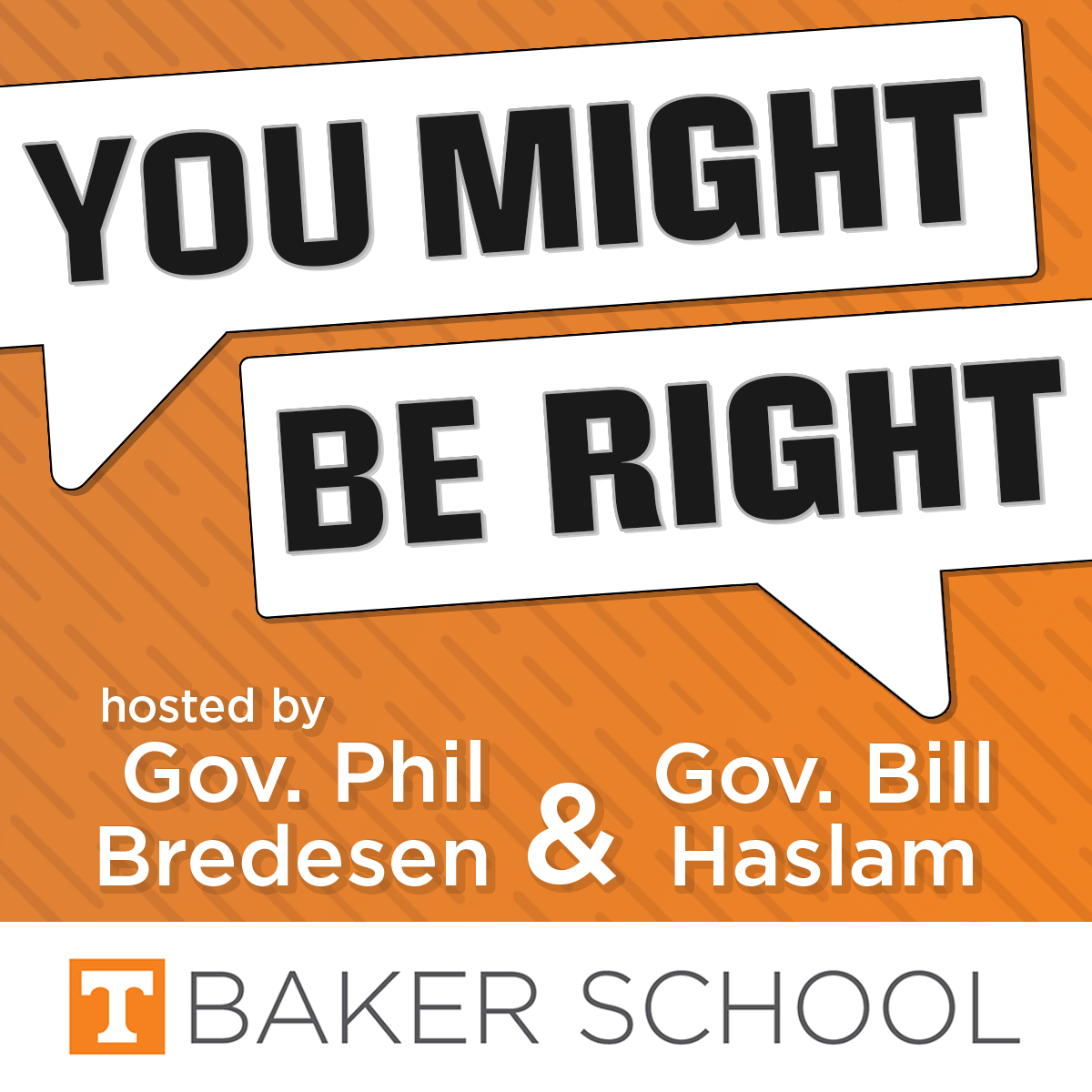What are the Best Ways to Address Crime?
EPISODE 2: Jennifer Doleac, a renowned economist focused on crime and discrimination, and Ja’Ron Smith, a policy expert and partner at Dentons Global Advisors, join Governors Bredesen and Haslam to discuss the potential policy responses to crime
What is really going on with crime rates in the U.S? And what are the policy options that might help? Jennifer Doleac, a professor and economist who will join Arnold Ventures as its Executive Vice President of Criminal Justice Policy in July 2023, and Ja’Ron Smith, a partner at Dentons Global Advisors and former Deputy Assistant to the President for Domestic Policy, join Governors Bredesen and Haslam to discuss the most effective policy responses to crime.
Subscribe and follow You Might be Right wherever you get your audio content – including Apple Podcasts, Spotify, and Stitcher – to never miss an episode, or sign up for our email list to receive new episodes straight to your inbox each week here.
“We are still much, much safer”
Doleac opened her conversation with the governors by putting current rates of violent crime into a historical context. “Violent crime in the United States peaked in the early nineties, and basically has been declining ever since with small blips here and there,” she said. “Basically during 2020, we saw a relatively large increase in homicides and shootings that came as a big surprise because we had been going through this very long period of just becoming safer and safer and safer,” she said. “Violent crime is up now, relative to what it was in 2019, but we are still much, much safer – violent crime rates are much lower – than we were in the early 1990s.”
“Police have other effects than just on crime”
Doleac highlighted the evidence – or lack thereof – behind a number of different reform options. On bail reform, Doleac pointed to the use of algorithmic-based risk scores to automate decisions about who should be detained (“It turns out judges don’t like that very much,” she noted) and an effort in Philadelphia that aimed to eliminate cash bail for 50 percent of the defendants going through the local court system “had zero impact on who was actually detained.”
One area she noted where the evidence is clearer: tactics that deter crime from happening in the first place. Doleac discussed her research into the effect of DNA databases on the deterrence and the detection of offenders, which found that DNA profiling reduces recidivism within the next year by up to 43 percent. “The same sort of principle applies to putting more cameras on the streets… anything where you’re going to increase the likelihood that someone is identified as the offender and face consequences…has a huge deterrent effect,” she said.
“You can have both”
Smith, a partner at Dentons Global Advisors and the founder of Public Safety Solutions for America, a coalition with a smart-on-crime approach to improving public safety, discussed his work on the First Step Act, a bipartisan criminal justice reform bill that became law in 2018, and called for a holistic approach to continued reforms. “I think we just want to take a nuanced approach towards how we reform our system in a way that protects public safety and at the same time creates fair accountability for crimes or things that people do that are against the law,” he said.
What role should evidence-based law enforcement play? Smith said he didn’t see the issue as either-or. “I think that you can have both,” he said. “You can have police be focused on where crime is the worst. In most cases, you have like less than 1 percent of a given locality causing 70 percent of the crime. You can really target those areas. But in targeting those areas, you need to work with those communities so that you can build trust and don’t make the mistake that’s happened in many communities where there’s no trust and you put a one-size-fits-all approach and just start profiling people because they look a certain type of way.”
Subscribe and follow You Might be Right wherever you get your audio content – including Apple Podcasts and Spotify – to never miss an episode, or sign up for our email list to receive new episodes straight to your inbox each week here.

Join the conversation on Twitter by following @UTBakerSchool, @PhilBredesen, and @BillHaslam.